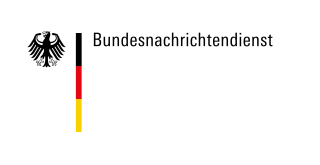
The Ministry for State Security, commonly known as the Stasi, an abbreviation of Staatssicherheit, was the state security service of East Germany from 1950 to 1990.

Der Spiegel is a German weekly news magazine published in Hamburg. With a weekly circulation of about 724,000 copies in 2022, it is one of the largest such publications in Europe. It was founded in 1947 by John Seymour Chaloner, a British army officer, and Rudolf Augstein, a former Wehrmacht radio operator who was recognized in 2000 by the International Press Institute as one of the fifty World Press Freedom Heroes.

Erich Fritz Emil Mielke was a German communist official who served as head of the East German Ministry for State Security, better known as the Stasi, from 1957 until shortly after the fall of the Berlin Wall in 1989.

Markus Johannes Wolf, also known as Mischa, was head of the Main Directorate for Reconnaissance, the foreign intelligence division of East Germany's Ministry for State Security. He was the Stasi's number two for 34 years, which spanned most of the Cold War. He is often regarded as one of the best-known spymasters during the Cold War. In the West he was known as "the man without a face" due to his elusiveness.
Benno Ohnesorg was a West German university student killed by a policeman during a demonstration in West Berlin. His death spurred the growth of the left-wing German student movement.

Prostitution in Germany is legal, as are other aspects of the sex industry, including brothels, advertisement, and job offers through HR companies. Full-service sex work is widespread and regulated by the German government, which levies taxes on it. In 2016, the government adopted a new law, the Prostitutes Protection Act, in an effort to improve the legal situation of sex workers, while also now enacting a legal requirement for registration of prostitution activity and banning prostitution which involves no use of condoms. The social stigmatization of sex work persists and many workers continue to lead a double life. Human rights organizations consider the resulting common exploitation of women from East Germany to be the main problem associated with the profession.

Salon Kitty was a high-class Berlin brothel used by the Nazi intelligence service, the Sicherheitsdienst (SD), for espionage purposes during World War II.

The Federal Intelligence Service is the foreign intelligence agency of Germany, directly subordinate to the Chancellor's Office. The BND headquarters is located in central Berlin. The BND has 300 locations in Germany and foreign countries. In 2016, it employed around 6,500 people; 10% of them are military personnel who are formally employed by the Office for Military Sciences. The BND is the largest agency of the German Intelligence Community.

Werner Teske was an East German Hauptmann (Captain) of the Ministry for State Security (Stasi). Teske was a senior intelligence officer in the Stasi's economic espionage division when he was accused of plotting to defect to West Germany with sensitive information and embezzled money. In the one-day trial, Teske was found guilty of espionage and desertion. He was sentenced to death and subsequently executed in June 1981.
James W. Hall III is a former United States Army warrant officer and signals intelligence analyst in Germany who sold eavesdropping and code secrets to East Germany and the Soviet Union from 1983 to 1988.
The Stasi Records Agency was the organisation that administered the archives of Ministry of State Security (Stasi) of the former German Democratic Republic. It was a government agency of the Federal Republic of Germany. It was established when the Stasi Records Act came into force on 29 December 1991. Formally it was called the Federal Commissioner for the Records of the State Security Service of the former German Democratic Republic ; the official German abbreviation was BStU. On June 17, 2021, the BStU was absorbed into the German Federal Archives (Bundesarchiv).

Karl-Heinz Kurras was a West German police inspector, known primarily for fatally shooting unarmed student Benno Ohnesorg in the back of the head during a demonstration on 2 June 1967, outside Deutsche Oper against the state visit of Mohammad Reza Pahlavi, the last Shah of Iran. Kurras was acquitted of any wrongdoing in a series of controversial trials, due to which he became a prominent hate figure of the left-wing German student movement of the 1960s as well as the German New Left. They suspected that Kurras was under protection from many right-wing figures in the West German police and justice system and who were resentful towards the left-wing students. The incident is considered pivotal for the rise of left-wing terrorism in West Germany during the 1970s, culminating with the Movement 2 June and the Red Army Faction.

The murders of Paul Anlauf and Franz Lenck were a double homicide that took place in Berlin, Germany on 9 August 1931, when Berlin police captains Paul Anlauf and Franz Lenck were assassinated by the paramilitary wing of the Communist Party of Germany (KPD) on the orders of KPD leader and future East German Premier Walter Ulbricht. One of the murderers, Erich Mielke, later became the head of the Stasi, the secret police of East Germany, and it was only in 1993 that he was tried and convicted of the murders.
Operation Clausewitz was the code word initiating the defence of Berlin by Nazi Germany during the final stage of the European Theatre of World War II. Clausewitz was established in the 9 March 1945 document, Basic Order for the Preparations for the Defense of the Reich Capital, a 33-page document containing 24 separate points. The second point of the document, in full (translated) is: "The Reich capital will be defended to the last man and to the last bullet." It has been referred to as the Nazis' last stand against the Soviets.
Zersetzung was a psychological warfare technique used by the Ministry for State Security (Stasi) to repress political opponents in East Germany during the 1970s and 1980s. Zersetzung served to combat alleged and actual dissidents through covert means, using secret methods of abusive control and psychological manipulation to prevent anti-government activities. People were commonly targeted on a pre-emptive and preventive basis, to limit or stop activities of dissent that they may have gone on to perform, and not on the basis of crimes they had actually committed. Zersetzung methods were designed to break down, undermine, and paralyze people behind "a facade of social normality" in a form of "silent repression".
Hotel Clausewitz is a 1967 West German comedy film directed by Ralph Habib and starring Wolfgang Kieling, Maria Brockerhoff and Friedrich Schoenfelder.
Hans Helmcke, full name Hans Heinrich Helmcke, was an influential West Berlin pimp and brothel owner. He was murdered by rival pimps.
Christel Boom was an East German intelligence agent who worked for the Stasi to infiltrate the Social Democratic Party of Germany (SPD), the ruling party of West Germany from 1965 to 1983. Alongside her husband, Günter Guillaume, she helped to orchestrate the infiltration of the West German Chancellor Willy Brandt's government. The pair passed NATO and SPD information to the Stasi between 1969 and 1974. Their exposure as spies in 1974, dubbed the Guillaume affair, was part of a chain of events which led to Brandt's resignation as Chancellor the same year.
Relations between East Germany and the United States formally began in 1974 until the former's collapse in 1990. The relationship between the two nations was among the most hostile during the Cold War as both sides were mutually suspicious of each other. Both sides conducted routine espionage against each other and conducted prisoner exchanges for their respective citizens which included spies for both the Americans and Soviets.
Leo Wagner was a German politician (CSU). Between 1961 and his resignation from it, formally at the end of 1976, he served as a member of the West German Bundestag (parliament). For many years he was part of the inner political circle around the party leader, Franz Josef Strauß.










